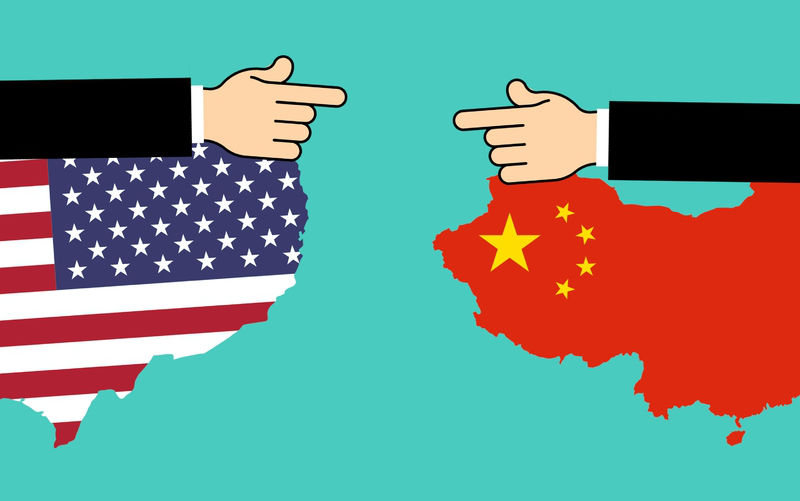The US / China blame-game
June 14, 2022
All wars are avoidable, not just the war in Ukraine, but a future war with China too. Most of Australias wars have been unnecessary, as historian Henry Reynolds has shown. A war with China would be both: avoidable and unnecessary. It would be more catastrophic for Australia than any we have fought.
Yet our former Defence Minister found it inconceivable that if the US goes to war over Taiwan, Australia will not be involved. Peter Dutton advised us if we want peace, to prepare for war. Preparing for peace would seem a more rational choice for any Australian government. Australia has no prospect of matching China militarily, or fending off even a cyber-attack, let alone countering an armed assault. Our record with our US ally since 1945 in winning wars doesnt inspire confidence. Former Prime Minister Kevin Rudd has pithily described the idiot Duttons statement as declaratory bullshit.
Peace is not in prospect. Yet the belief of many Australians, including Hugh White, is that America has kept the peace in our region for seventy years. Can the US be trusted to go on doing so and defending its allies in future wars? In this century, Russia has recovered and China has risen, while the competitive edge of the US, for all its wealth and power, has become perceptibly blunt.
The leaders of the US, Russia, and China are all obliged by domestic political considerations not to be cowed by foreign competitors, nor to resile from their own aspirations. President Biden is determined to restore US global hegemony, by first taking down Russia, and next China. But Russia will not cede Crimea or Donbas, nor will China abandon its sovereignty over Taiwan. A World War I-style scenario threatens.
Rudds timely book The Avoidable War is not concerned with Australias options, but with the US-China contest. He addresses much of his argument to Americans, knowing that where they go, Australia will follow. China, he hopes, may listen. His purpose, as a former diplomat, a Mandarin speaker, and President of the Asia Society in New York, is to explain American and Chinese attitudes to each other, to wean them off their mutual prejudices, and possibly to save the world.
While Rudd admits that those who advocate rebuilding strategic trust are laughed at in both countries, he proposes a series of steps towards stabilising relations between the US and China, and avoiding confrontation before it is too late. He warns: A war between China and the US would be catastrophic, deadly, and destructive. Only by a major effort on both sides can two such different world-views be reconciled. Both perceptions and behaviours need to change.
For example, Rudd points out, the Chinese know that the colour revolutions and the Arab Spring, in which governments in eastern and central Europe and the Middle East were overthrown, were instigated by the US. They similarly see Americas hand in the expansion of unsanctioned Protestant churches in China, and the pro-democracy demonstrations in Hong Kong. Chinas operations in the South China Sea do not compare, in Beijings view, with what the US does globally. Both China and the US conduct gray zone operations wherever they can. Americans, on the other hand, are concerned about the operations of the CCPs United Front Work Department among Chinese in the US, theft of technology, and alleged genocide and crimes against humanity by Beijing against Uighurs in Xinjiang, as well as the collaboration between Xi and Putin.
Wuhan isnt indexed in Rudds book, yet the origins of COVID-19 there (or somewhere else) provide an example of the deep disconnect between the US and China. Rudd describes Beijings response as initially tepid, but so was that of the US, where Trump overlooked expert warnings for longer than they were suppressed in China. Its known that the US had been active in Gain of Function virus research long before China was, and that American collaboration and funds for it had been lavished on China for more than a decade before the outbreak. The mutual blame-game, in which Australia sided with the US, caused lasting damage to Australias exports to China and relations with Beijing, while trade benefits went to American farmers.
At least, for now, China maintains no first use of nuclear weapons, and a policy of winning without fighting. Instead of seeking regime change, its Shanghai Cooperation Organisation and Belt and Road Initiative build connections and capabilities from China to the borders of the West, and do so peacefully. The US, in contrast, favours military responses. Penny Wongs visit to the South Pacific was reported in America not as an opportunity to re-setAustralia-China relations, but as a US-instigated anti-China mission. Labor was aggressively prosecuting a US-led campaign in the Pacific, aimed at shoring-up the regional hegemony of American and Australian imperialism and furthering the advanced preparations for war against China. (Oscar Grenfell**@Oscar_Grenfell**WSWS, 4 June 2022. https://www.wsws.org/en/articles/2022/06/04/ngog-j04.html.)
The solution Rudd proposes is managed strategic competition, and much better mutual understanding between China and the US (and hence Australia). As he concludes, both great nations should perform better with human rights, and pay more deference to international law, as well as signing the Treaty on the Prohibition of Nuclear Weapons. As the worlds two worst carbon emitters, they should take exemplary action. If his rational proposal for concessions on both sides is not heeded, we are all doomed.
Dr Alison Broinowski AM is President of Australians for War Powers Reform and a former Australian diplomat.

